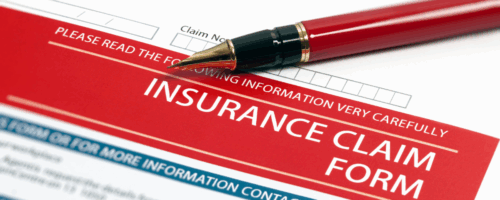Disclaimer: This blog post is for informational purposes only and does not constitute legal advice. Please consult an attorney for guidance on specific laws regarding Remote Online Notarization (RON), digital signatures, and related legal matters. As laws concerning RON and notarization are subject to frequent changes, it is advisable to verify current regulations with your local government.
How to Get Document Notarized Abroad is a topic that often raises questions, especially when legal or financial matters—like real estate closings or powers of attorney—are involved. The process may appear complicated and unfamiliar, particularly when navigating international requirements.
This guide outlines how to get documents notarized abroad using both online notary platforms and traditional options such as U.S. Embassies and Consulates. Each method has its own procedures, potential challenges, and possible benefits. Understanding these differences can help individuals make informed choices.
By breaking down key steps—from identifying notarization requirements to addressing document authentication and apostille needs—this resource offers practical insight into an often misunderstood process. Whether you’ve encountered this before or are navigating it for the first time, the information here aims to support a more informed and confident approach to overseas notarization.
Understanding the Notarization Process Abroad
Navigating the notarization process abroad often involves unfamiliar procedures and legal terminology. Questions frequently arise around how to get a document notarized and what role notaries play in different jurisdictions.
The Role of a Notary Public
A Notary Public is an official authorized to perform notarial acts—verifying identities, witnessing signatures, and helping deter fraud in legal transactions. These services are often required for documents such as real estate deeds, powers of attorney, and legal affidavits.
In 2011, Virginia became the first U.S. state to authorize certified notaries to conduct remote online notarizations, including for individuals located outside the country. This marked a significant shift in how notarization services are accessed globally.
The Importance of Notarized Documents
Certain documents carry more legal weight when notarized. Wills, trusts, property transfers, and other legal instruments often require notarization to be recognized as valid or enforceable in the United States.
For individuals located abroad—such as someone residing in Spain—foreign notaries or U.S. Consular officials may serve as authorized parties to carry out notarization in accordance with local or international standards.
While the process may appear complex, a better understanding of available options and legal requirements contributes to a more straightforward experience.
Online Notarization Services
Online notarization services have introduced a more flexible approach to document verification. Platforms such as NotaryCam support remote notarization by connecting signers with commissioned U.S. notaries through secure audio-video conferencing, offering an alternative to in-person appointments at consulates or local notary offices.
Benefits of Online Notarization
For individuals living or working outside the United States, obtaining notarized documents often involves scheduling consular appointments or locating a foreign notary. Remote Online Notarization (RON) offers an alternative method—connecting U.S. citizens and expats with commissioned U.S. notaries through secure video platforms.
With platforms like NotaryCam, eligible U.S. documents may be notarized digitally, often in just a few minutes. There’s no need to travel, visit an embassy, or mail physical paperwork. Instead, the process takes place online using a device with a camera, a stable internet connection, and valid identification.
Potential Benefits of Online Notarization Abroad:
- Convenience: Notarize documents from your home, office, or anywhere with internet access.
- Speed: Some platforms are equipped to complete notarizations quickly—often in under 10 minutes.
- Security: Sessions are recorded and encrypted to reduce the risk of fraud and provide a verifiable transaction history.
- Access to U.S. Notaries: Even when abroad, you may still work directly with a U.S.-commissioned notary.
- U.S. Legal Recognition: Digitally notarized documents are generally valid for use in the United States, including for real estate closings, business transactions, and estate planning needs.
However, it’s important to understand that Remote Online Notarization is not universally accepted across all jurisdictions. Some countries or local institutions may not recognize documents notarized through RON, and additional steps like apostilles or consular legalization may be required for international use.
Disclaimer: Before using online notarization services abroad, verify whether RON is accepted under your home country’s laws and whether the institution requesting the document recognizes U.S.-based digital notarization with an attorney. Local requirements vary, and compliance with both U.S. and foreign regulations should be confirmed in advance.
RON offers a streamlined option for many U.S. citizens abroad—but it’s not one-size-fits-all. Always check local legal requirements before proceeding.
Traditional Methods for Document Notarization Abroad
For U.S. citizens living overseas, document notarization often requires visiting a U.S. Embassy or Consulate. These government offices serve as an official channel for notarial services when local options are limited or when U.S.-specific notarization is required.
Role of U.S. Embassies and Consulates
U.S. Embassies and Consulates are authorized to provide public notarial services that are recognized in the United States. Consular officers may perform notarial acts similar to those conducted by notaries public in the U.S., including witnessing signatures, administering oaths, and certifying copies of documents.
These services are commonly used for legal documents such as:
- Powers of attorney
- Real estate transactions
- Affidavits
- Parental consent forms
- Business agreements
To receive notarial services at a U.S. Embassy or Consulate, individuals are typically required to:
- Schedule an appointment in advance
- Present valid government-issued identification (such as a U.S. passport or driver’s license)
- Pay a fee—usually $50 per document, though this may vary depending on the specific post or local requirements
Important Considerations
While these services are widely available, access may be limited by the embassy’s hours of operation, local holidays, staffing shortages, or unexpected closures. Advance planning is strongly recommended, especially if the document is time-sensitive or linked to legal deadlines.
For many abroad, U.S. Embassies and Consulates remain a trusted and officially recognized resource for notarization—especially when Remote Online Notarization is not accepted by local authorities or institutions.
Document Authentication and the Apostille
When using notarized documents outside the United States, some countries require additional verification in the form of an apostille. This certification is used to confirm the authenticity of a notarized document for legal use in participating foreign jurisdictions.
Obtaining an Apostille
An apostille is issued by a designated government authority, such as the U.S. Department of State or individual state agencies, depending on where the document was notarized. This process involves verifying the authority of the notary or official who signed the document.
Requirements and procedures vary by country. Some jurisdictions accept apostilles readily, while others impose additional steps or specific formatting guidelines. Because of this variation, it is important to review the requirements of the country where the document will be submitted.
Resources such as the Hague Conference on Private International Law (HCCH) provide guidance on apostille procedures, participating countries, and applicable rules. This can help clarify whether an apostille is necessary and how to obtain one for international use.
The Hague Apostille Convention
The 1961 Hague Apostille Convention established a simplified method for certifying public documents—such as birth certificates, academic records, court documents, and notarized legal agreements—for use across borders. Documents bearing an apostille are generally recognized in other Convention member countries without the need for further legalization by embassies or consulates.
This treaty reduced the administrative burden of document authentication, enabling more efficient cross-border transactions in areas like business, real estate, education, and legal affairs.
Note: While apostilles are widely accepted among member countries, they are not recognized everywhere. For countries not part of the Hague Apostille Convention, further authentication steps—such as consular or embassy legalization—may be required.
Additionally, U.S. military bases abroad may have officers authorized to perform notarial acts. However, these services typically apply only to specific situations and should not be assumed to meet international legal requirements without verification.
Notarization Services for Specific Documents
When living or conducting business overseas, certain documents often require notarization to be legally valid or recognized in the United States or other jurisdictions. While many types of documents may require a notary’s seal, real estate transactions and powers of attorney are among the most frequently notarized.
Real Estate Deals
Real estate documents, including purchase agreements, deeds, mortgage forms, and lease contracts, often require notarization to ensure the signer is who they say they are and that they aresigning the document of their own free will. Notarization can be a requirement in order for a document to have legal meaning, and it can help reduce fraud..
When dealing with real estate from abroad, such as buying or selling property in the U.S. while living in another country, U.S.-commissioned notaries (via Remote Online Notarization, where accepted) or U.S. consular officers are often used to meet legal requirements.
Important Consideration: Some jurisdictions require that notarized real estate documents also be authenticated with an apostille or legalized through consular channels. It’s essential to confirm requirements in both the country where the transaction is taking place and where the document will be submitted.
Power of Attorney
A Power of Attorney (POA) grants another individual the legal authority to act on your behalf in personal, legal, financial, or medical matters. Due to the broad authority it may convey, notarization of a POA is often required to verify the identity, understanding, and intent of the individual granting that power.
When notarizing a POA while overseas, U.S. citizens may use:
- U.S. Embassies or Consulates, which are authorized to perform notarial services
- Remote Online Notarization, if the POA will be used in a U.S. state that recognizes RON and if the receiving institution accepts it
- Local notaries in the foreign country, provided that the document is then authenticated through apostille or legalization as required
Each of these methods may have specific documentation, fee, and appointment requirements, which should be verified in advance.
Additional Tips for Notarizing Documents Abroad
- Verify Legal Acceptance: Before choosing a notarial method, confirm that the receiving party (e.g., court, title company, financial institution) accepts documents notarized outside the U.S.
- Check Apostille Requirements: For documents used across borders, an apostille or consular authentication may be needed.
- Use Secure Identification: Ensure that your identification meets the requirements of the notarial officer, whether local or U.S.-based.
- Plan Ahead: Embassy appointments and document delivery (if mailing originals) may add time to your process.
Proper notarization adds legal credibility and safeguards against fraud, especially important when signing critical documents from abroad. Taking the time to follow the correct steps helps ensure your paperwork is recognized, enforceable, and protected across borders.
A Word of Caution
While platforms like NotaryCam provide a convenient way to access notarization services from abroad, their use is not universally accepted. Legal recognition of Remote Online Notarization (RON) varies by country, and not all foreign jurisdictions, institutions, or agencies will accept electronically notarized documents.
Before relying on an online notarization platform for important matters—such as real estate transactions, powers of attorney, or business agreements—it is essential to understand the legal requirements of the country where the document will be used. Some transactions may specifically require notarization by a U.S. consular officer or local notary, followed by an apostille or consular authentication.
When dealing with cross-border legal documents, careful review of both U.S. and local laws helps reduce the risk of delays, rejections, or complications. Staying informed about jurisdiction-specific regulations and consulting legal or professional guidance, when needed, supports a smoother and more reliable notarization process abroad.
Conclusion
Navigating document notarization from abroad involves understanding a mix of U.S. and international requirements. Whether you’re handling real estate transactions, executing a power of attorney, or managing other legal matters, choosing the right notarization method depends on where the document will be used and the legal standards in place.
Remote Online Notarization offers added convenience for many U.S.-based needs, while traditional options through U.S. Embassies or Consulates remain essential for documents requiring in-person authentication or international recognition. Apostilles or additional certifications may also be necessary, depending on the destination country.
Taking the time to understand these options and local requirements supports a more efficient and legally sound process. When in doubt, consult local authorities or legal professionals to confirm which notarization method aligns with your specific situation.
.Common Questions About How to Get Document Notarized Abroad
How do I get a notarized copy in USA?
To obtain a notarized document in the U.S., start by locating a licensed Notary Public. Notaries are commonly available at banks, law firms, shipping centers (like UPS), and through authorized online notarization platforms.
For in-person notarization, bring the original document and a valid, government-issued photo ID to your appointment. The notary will verify your identity, witness your signature, and then apply their official seal and signature to complete the process.
For online notarization, you’ll follow the platform’s digital workflow. This typically involves uploading your document, completing an identity verification step (such as answering security questions or uploading ID), and joining a secure video session with a remote notary. After confirming your identity and observing the signing, the notary will electronically apply their signature and seal.
In both cases, notarization serves to confirm the authenticity of the signature and the identity of the signer—not the content of the document.
How do I get a U.S. document notarized in France?
To notarize a U.S. document while in France, there are two primary options:
- Remote Online Notarization (RON): U.S.-based online notarization platforms allow eligible individuals abroad to connect with a commissioned U.S. notary via secure video call. After verifying your identity and witnessing the signing, the notary will apply a digital seal. These services are generally recognized for documents used within the United States; however, acceptance by French institutions or authorities should be confirmed in advance.
- U.S. Embassy or Consulate: If in-person notarization is required or preferred, the nearest U.S. Embassy or Consulate in France may offer notarial services. Appointments are usually required, and you must present valid identification and pay a standard fee. Some documents may also require translation into French or additional authentication, such as an apostille, depending on their intended use.
Before proceeding, review the specific requirements of the receiving party—whether in the U.S. or France—to ensure the notarization method meets legal or institutional standards.
Can a U.S. notary notarize a UK document?
A U.S. notary may notarize a document intended for use in the UK, provided the signer appears in person (or via approved remote online notarization) and the notarization occurs within the notary’s authorized jurisdiction. The notary’s role is to verify the identity of the signer and witness the signing—not to determine the document’s legal content or its acceptance abroad.
However, legal recognition in the UK is not guaranteed. Acceptance of a U.S.-notarized document depends on the requirements of the receiving institution or authority in the UK. In many cases, an apostille issued under the Hague Apostille Convention may be required for the document to be considered valid.
It is advisable to confirm with the UK recipient whether a U.S.-notarized and apostilled document will meet their standards before proceeding.
How do you get a U.S. document notarized in Germany?
There are two main ways to notarize a U.S. document while in Germany:
1. Remote Online Notarization (RON)
Several U.S.-authorized platforms offer Remote Online Notarization, allowing individuals located abroad to connect with a commissioned U.S. notary via secure video conference. The notary verifies your identity, witnesses your signature, and applies a digital seal.
- This method is commonly used for documents intended for use in the United States.
- Before proceeding, confirm whether the recipient of the document (e.g., a U.S. agency, financial institution, or court) accepts RON.
- For documents being used in Germany, additional authentication—such as an apostille—may be required, and acceptance is not guaranteed.
2. U.S. Embassy or Consulate Notarial Services
U.S. Embassies and Consulates in Germany (located in Berlin, Frankfurt, and Munich) offer limited notarial services similar to those provided by a notary public in the United States.
- Appointments are required and should be booked in advance through the embassy or consulate website.
- Valid government-issued ID is necessary.
- A standard fee (usually $50 per document) applies.
- Not all document types are eligible for embassy notarization, so review requirements beforehand.
Important: Always confirm whether your document qualifies for the chosen notarization method and whether the receiving party—whether in the U.S. or Germany—will accept the notarized form. Legal and institutional requirements vary by jurisdiction.







 Your Privacy Choices
Your Privacy Choices


